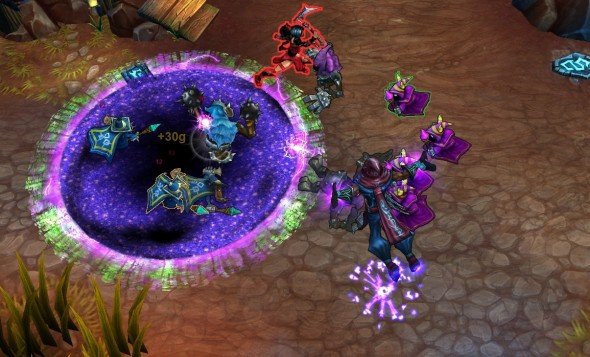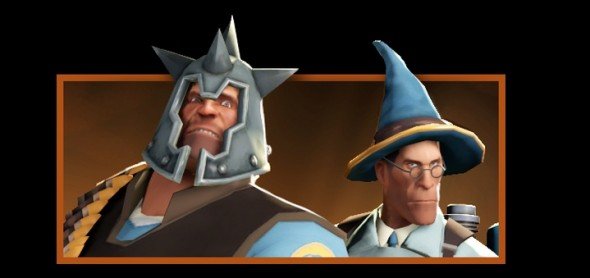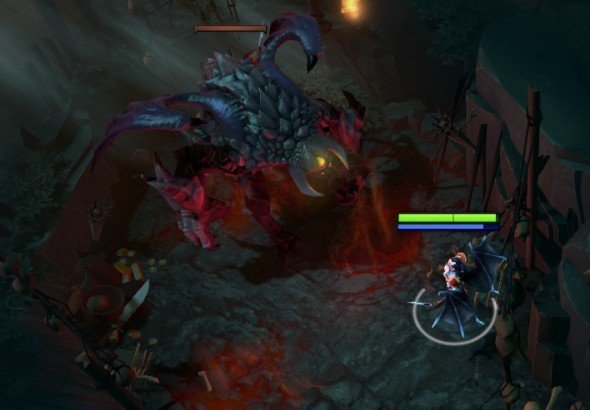Decoding Blizzard and Valve's trademark dispute: who really owns DOTA?
Paragraph 18. Third, Blizzard has licensed the DotA Mods and the DOTA Marks on an ongoing basis for a variety of third party uses. These uses include, but are not limited to, DotA tournaments and competitions, entertainment products (such as the popular musical recording "DotA" by recording artist "Basshunter"), and fan artwork.
I just love the idea of this being submitted as evidence in court. Also: 30 million views on Youtube. I think I'm going to go off and have a little cry for a bit. Join me in paragraph 21 when Riot games get grappled into the team-fight.
Paragraph 21: In or about October 2004, two Warcraft fans, Steve Feak (who also participated in the development of the DotA mods) and Steve Mescon, launched the Internet website DotA-Allstars.com (www.dota-allstars.com) (the "DotA-Allstars Website"). The DotA-Allstars Website was a website dedicated to promoting, advertising and distributing the DotA Mods. The DotA-Allstars website was visited by millions of people, and at one time the average number of visitors to the website exceeded one million each month. Via the DotA-Allstars Website, Feak and Mescon distributed versions of the DotA Mods, communicated with members of the public concerning the DotA Mods, advertised upcoming DotA tournaments and competitions, and collected fan artwork concerning the DotA Mods. All of these activities were undertaken with the authorization and consent of Blizzard, pursuant to the EULA. In 2008, Feak and Mescon each assigned all of their rights in and to the DotA Mods and the DotA-Allstars Website to "DotA-Allstars, LLC." In 2010, DotA-Allstars, LLC was purchased by Riot Games, Inc. In 2011, Riot transferred DotA-Allstars, LLC to Blizzard. Accordingly, Blizzard now possesses all rights that DotA-Allstars LLC may have had in connection with the DotA Mods and the DotA-Allstars website, including any trademarks or other goodwill DotA-Allstars LLC may have had in the DOTA Marks.
So. Yeah. Riot is a fascinating company for all kinds of reasons, but the thing that's always struck me is their laser focus and understanding of what it is they're going to make. League of Legends was not an accident: they figured out what gamers wanted to play, then hired the best talent in the world to make that game happen. Along the way, they happened to pick up the company that was formed by the Dota-Allstars devs, and brought those developers into the fold. In 2011, presumably with Blizzard's legal team saying: “don't be dicks”, they gave up all rights to the DOTA-Allstars website. At this point, given Riot's incredible and hard-earned success, they can't be that bothered.

Here's the frustrating thing about Blizzard owning the Dota-Allstars site: they're currently just showing a GoDaddy domain renewal page. And if you search Google for DOTA All-Stars, you're taken to playdota.com, which distributes a version of the Warcraft 3 map. Which is still being updated by Icefrog. Despite the fact he works at Valve.
Hnnnng. This is such a mess.
So: Blizzard clearly think they own the name DOTA, and they've presented some pretty compelling evidence. I am not a lawyer, but it's hard to dispute what they say. What happens next? At some point, the dispute will be resolved. Either Valve succeed in getting the trademark assigned to them, or they don't.
Keep up to date with the most important stories and the best deals, as picked by the PC Gamer team.
What happens if Valve win? Well, that's the weird thing. If Valve get the trademark, it seems that Blizzard would be technically infringing Valve's copyright by hosting DOTA on Battle.net. The apocalypse scenario is that that would force DOTA offline. Great for everyone else making a DOTA game. Kind of a bummer for players. And you can probably say goodbye to Blizzard DOTA.
What happens if Blizzard win? If Blizzard successfully dispute the trademark, then I think Valve would be extremely brave to release DOTA 2 and call it DOTA 2. If they don't own the trademark, they open themselves up to infringement cases from those who do own the trademark. Take a page from Riot's book and call it WTF, or OMG. Or something else entirely.

Valve have been in similar situations in the past. Their most successful multiplayer games are all the product of the mod community: Team Fortress, developed in part by Robin Walker in the Quake engine begat Team Fortress Classic (for the Half-Life tech) which begat hat based murder simulation Team Fortress 2. Robin ended up working at Valve, and id, on whose technology and art the original mod relied, didn't seem to care. Counter-Strike was a similar situation, albeit based on Half-Life tech. A fantastic mod spawned a massive community which Valve rapidly embraced. Some of the key Counter-Strike developers were brought in-house, even today, CS is probably the most played shooter online. Mod-makers made it good. Day of Defeat? Mod makers again, brought in, to work full time on Day of Defeat: Source. Alien Swarm? Same again.
In all these situations, Valve have created a place where the developers of the mods can work full time on their game with the vast resources of the world's most successful game developer. Gamers and the creators have all benefited from Valve's belief in the talent that created the game. That kind of commercial altruism is all kinds of impressive. I honestly think that Valve's absorption of DOTA 2 began with the same intentions: to provide an environment where Icefrog and the DOTA developers could have the space to continue to maintain and build upon their successes.
But... you can't deny that DOTA 2 is an amazing commercial opportunity; probably a bigger deal than Counter-Strike and TF2 put together. DOTA is exceptionally popular in places Steam doesn't necessarily have a foothold yet: China for one. If Valve can figure out the business of DOTA - I think we're all presuming some form of free-to-play model in which Valve sell hats and/or new heroes - then it will obviously make everyone involved exceptionally rich. But it's also a big deal for PC gaming: if DOTA 2 can popularise Steam in China, then that's a win for PC gaming in general.

Back to the opening question: who owns DOTA? I don't know. I think everyone involved has fair claim to own a bit of it, and all the parties involved will see, or have seen great success.
In reading all of this, I was struck by something: there are multiple parts to DOTA, and not all of them are able to be owned by any one company. There's the name. There's the art, style and and assets used to illustrate it. And there's the rules and mechanics.
The reality is that DOTA wasn't made like normal games, and the normal rules of ownership simply don't apply. DOTA is a product of the commons; a game made better by the community and all the developers who worked on it. I don't think you anyone can ever claim ownership of the whole thing.
So: here's a mad, almost entirely unworkable solution. No-one should own it. All rights and claims to the DOTA name should be transferred to a non-profit, which can then, in turn. Every game using the DOTA name can be badged and/branded as such. And in exchange for the branding, all of those who wish to use the trademark can make a donation to a favoured charitable cause. Everyone wins. Or perhaps, most importantly, no-one loses.
It will never happen.

